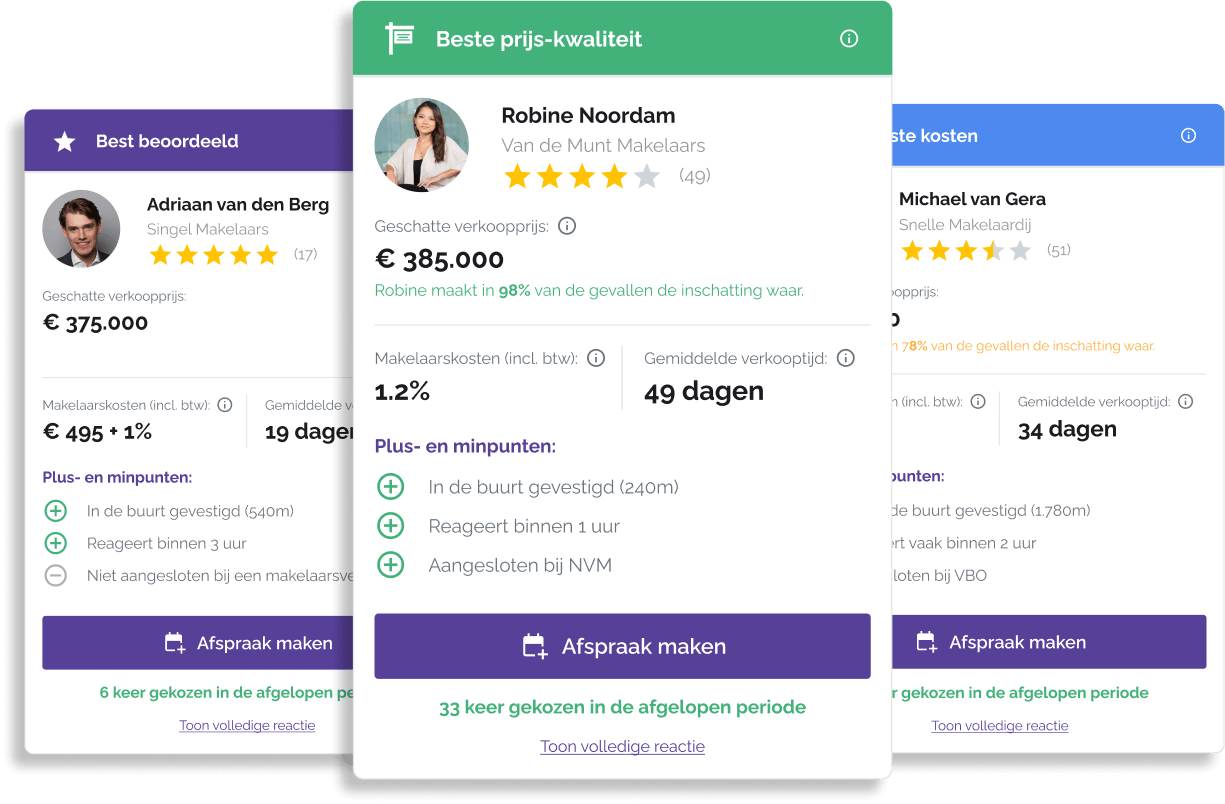Table of contents
Are you abroad and looking for a way to sell your house in the Netherlands? Or are you unable to be physically present at the signing of the purchase deed and/or the transfer deed due to illness or another situation? With a power of attorney, you can have someone else sign on your behalf, and you can sell your house remotely. Read on and discover everything you need to know about selling your house via a power of attorney.
Can you authorize someone else to sell your house?
Yes, through a power of attorney, you can authorize someone else to sell your house. This solution is useful when you are abroad during the sales process, or when you cannot be present for other reasons (such as illness). Depending on the step in the sales process, you can authorize a friend, the real estate agent, or the notary to carry out (legal) actions on your behalf.
What is a power of attorney?
A power of attorney is a written declaration, in which you give someone else the authority to, on your behalf, carry out certain (legal) actions. There are two types of powers of attorney: the private power of attorney and the notarial power of attorney.
Private power of attorney
You can easily draft a private power of attorney yourself, you do not need to visit the notary for this. With a private power of attorney, you authorize someone else, such as a friend or the real estate agent, to act on your behalf. This includes negotiating with a potential buyer, accepting an offer, and signing the purchase agreement.
The power of attorney must clearly state for which action(s) the power of attorney applies. Therefore, adjust the power of attorney to your specific wishes, such as the amount of the desired bid or the precise assignment to the real estate agent.
Be aware: you always need a notarial power of attorney to sign the transfer deed remotely.
Notarial power of attorney
A notarial power of attorney is a power of attorney that is recorded in a notarial deed. To prepare such a power of attorney, you need to visit the notary. You give the relevant notary the authority to sign the transfer deed on your behalf. This allows you to sell your house while you are not physically present.
Most notary offices offer the option to draft a notarial power of attorney. The buyer of your house chooses the notary. Once the notary is known, it's important to inquire directly if you can use such a power of attorney. Some time may pass before the power of attorney is prepared. The notary checks your identity and whether you are competent to grant the power of attorney. Preparing a notarial power of attorney costs money.
After granting the authority, the notary remains in close contact with you as the seller. After the transfer, the buyer receives the key to your house and the notary checks whether the house is free of claims. If it is, you will receive the purchase amount on your account a few days later.

Which power of attorney do you use during the sales process?
As you have read above, it can vary per action which power of attorney you can use. We have listed the different actions and the type of power of attorney for you:
- Negotiating with a potential buyer: this can be done via a private power of attorney.
- Accepting an offer: this can be done via a private power of attorney.
- Signing the purchase deed: this can be done via a private power of attorney.
- Signing the transfer deed: this always has to be done via a notarial power of attorney.
When does a power of attorney end?
A power of attorney ends when the grantor:
- Revokes the power of attorney
- Passes away
- Is placed under guardianship
- Goes bankrupt
- Enters debt restructuring
A power of attorney ends when the authorized person:
- Cancels the power of attorney Dies, unless otherwise stipulated
- Is placed under guardianship, unless otherwise stipulated
- Goes bankrupt, unless otherwise stipulated
- Enters debt restructuring, unless otherwise stipulated
Additionally, a power of attorney can end when the goal established in the power of attorney is achieved or a date specified in the power of attorney has passed.

- Receive proposals from multiple real estate agents
- Get clarity about the costs in advance
- Choose based on performance and results
- Over 10,000 people preceded you
- Free & without obligation
- Independent
- No obligation
- Free
- Fast












